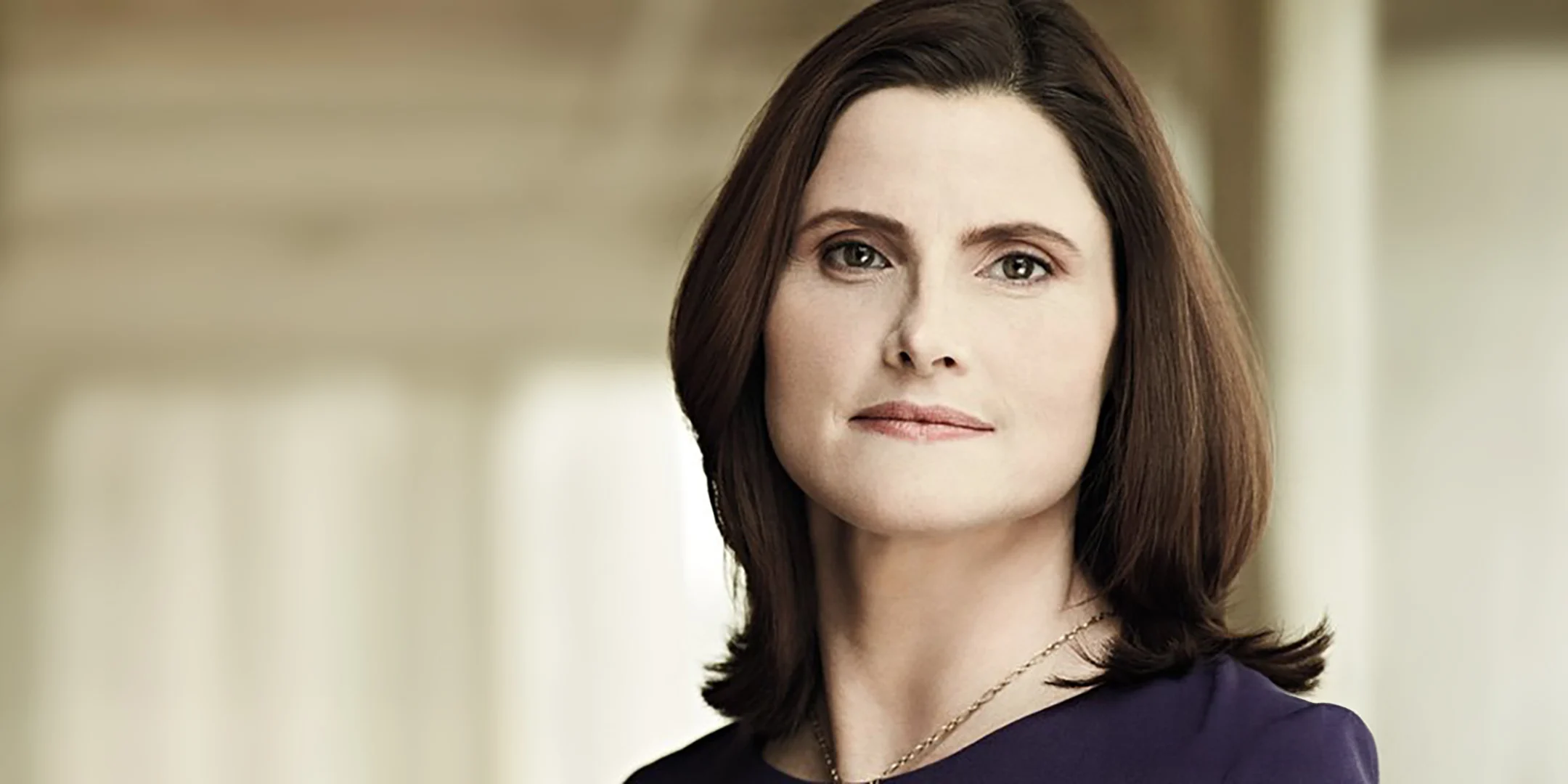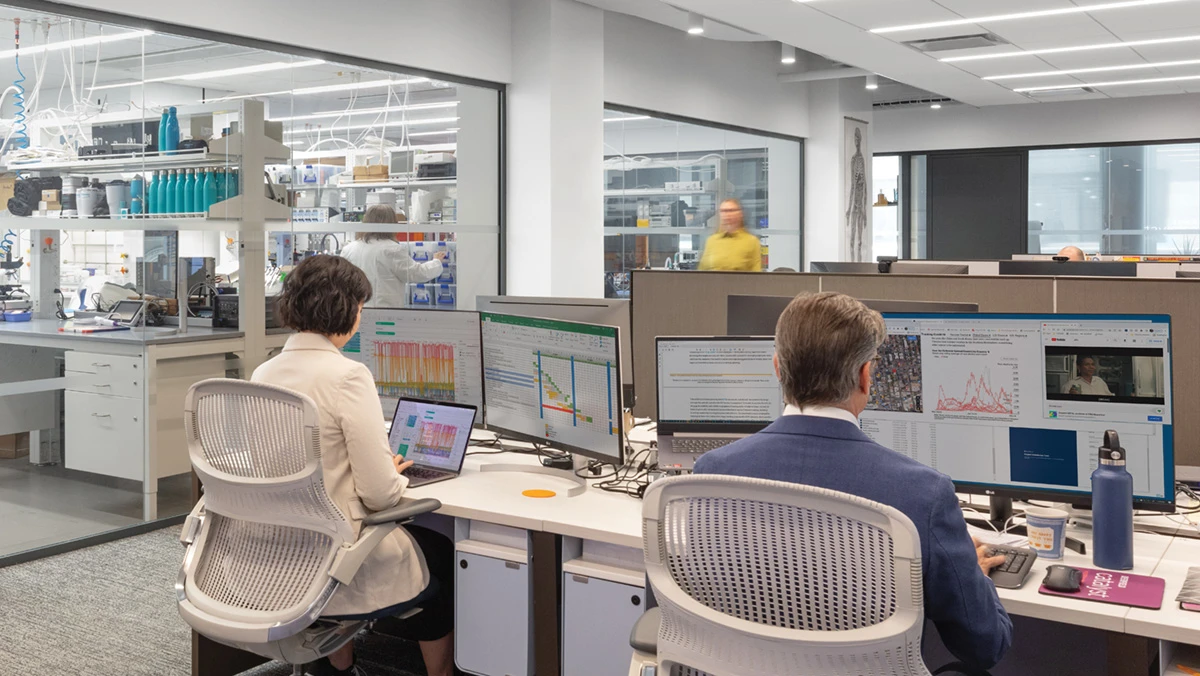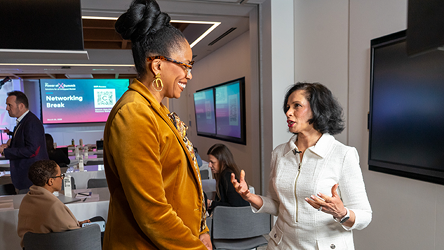August 28, 2025
Article
Turning Research into Healthcare Startups: Weill Cornell Medicine’s BioVenture eLab

BioVenture eLab Director Loren Busby, courtesy of Weill Cornell Medicine Enterprise Innovation.
Overview
The BioVenture eLab, part of Weill Cornell Medicine Enterprise Innovation, equips innovators with business expertise, funding pathways, and investor connections to accelerate the translation of ideas to the marketplace.
Helping scientists and clinicians transform discoveries into biotech ventures that reach patients faster.
In an age when AI seems to advance weekly, better disease treatments and cures can still take years to reach patients. But more institutions are rethinking how to accelerate the path from discovery to commercially available solutions.
At Weill Cornell Medicine in New York City, the BioVenture eLab is doing just that. What began as a student club about a decade ago has grown into a fully-fledged suite of programs and services dedicated to helping faculty and students explore entrepreneurial pursuits to turn promising technology into commercial solutions.
From an organizational perspective, BioVenture eLab is integrated into the Weill Cornell Medicine Enterprise Innovation team, including the Center for Technology Licensing (CTL) at Weill Cornell Medicine and a gap funding program known as the Enterprise Innovation Catalyst Fund.
By embedding business expertise alongside scientific talent, the BioVenture eLab is demonstrating how an academic medical institution can train and support budding entrepreneurs to ensure that research doesn’t stop at publications and grants, and reaches patients.
How BioVenture eLab Fosters a Culture of Innovation
The BioVenture eLab’s overarching goal is to foster a culture of innovation and entrepreneurship across the institution. The 1980 Bayh-Dole Act allowed universities to own patents from federally funded research, which essentially launched the age of technology transfer.
“Not all scientific researchers or clinicians have thought to look at their ideas through a commercialization lens,” said BioVenture eLab Director Loren Busby. “We help them adapt the way they communicate the impact of their science in a way that resonates with investors and industry .”
The BioVenture eLab strives to incorporate entrepreneurship training and resources into the researchers’ mindset from the get-go. “We’re making it the expected fabric of how research is conducted,” Busby added. Then, when there is a tangible opportunity, the investigators are ready to take the steps towards technology transfer.
Tapping into varied expertise throughout NewYork-Presbyterian/Weill Cornell Medical Center as well as Cornell University in Ithaca, the BioVenture eLab provides extensive support to its scientist-inventors turned entrepreneurs and goes beyond scientific resources.
Busby brings her real-world business acumen, having spent much of her career in venture capital, and the broader Enterprise Innovation team contributes scientific knowledge, legal and patenting expertise, and business development/commercialization skills.
Busby noted that Weill Cornell Medicine’s location is also an asset. “New York City is a tight-knit community that’s aligned with growing the biotech infrastructure here.”
Tailoring Entrepreneurial Education to Students and Faculty
When the BioVenture eLab first started coming together around 2016, it was driven by students wanting to explore career paths outside of academia. They brought in guest speakers, drawing the attention not only of other students but also of faculty. Clinicians and PIs began seeing opportunities to turn their ideas into products.
At that time, the previous BioVenture eLab director Jahanara Ali, PhD, now a startup company advisor, noticed faculty members had different needs to help support their entrepreneurship interests. The seasoned scientists with a body of knowledge in their field needed a more hands-on approach, which the BioVenture eLab fills, providing faculty with exposure to areas such as intellectual property (IP) strategy and regulatory pathways. A separate entrepreneurship program is tailored for students and includes pitch competitions and potential internships and capstone projects.
A Wrap-Around Approach to Technology Transfer
After the BioVenture eLab’s almost decade of operation, many Weill Cornell scientists are now fluent in the concept of entrepreneurship, and ideas with commercial potential are flourishing, noted Busby.
“There has to be an unmet medical need, with a chain of early evidence in vitro and in vivo, that indicates that this particular therapeutic product will be effective, and interest from funding sources so that you can continue the science through the regulatory path,” explained Busby.
Weill Cornell Medicine inventors generate 75 to 100 new technology disclosures every year. The Enterprise Innovation team evaluates them based on factors including market opportunity and patient impact.
About half to two-thirds of new technologies disclosed are selected to move into the Enterprise Innovation portfolio. The team then commits time, resources, and expertise to advance the project toward market readiness.
That can take several routes. One strategy may leverage the BioVenture eLab when considering the launch of a “newco.” Another strategy may be to continue developing the technology internally before licensing to industry. Internal programs like the Catalyst Fund provide gap provide funding to de-risk technologies before seeking additional external sources of capital.
The full Enterprise Innovation team works in collaboration with the faculty member or postdoc to identify and secure IP and create a business development plan with clear benchmarks and timelines, to decide which innovations are worth continued investment of institutional resources.
This includes leading commercial outreach efforts, connecting innovators with commercial collaborators , and brokering introductions with external investors and funders such as angel investors, foundations, and venture funds to help bootstrap startups incubating in the BioVenture eLab.
The BioVenture eLab’s suite of services for newcos, includes connections with external contract research organizations (CROs) that can help design and execute pre-clinical studies. Such relationships help generate evidence needed to validate the discovery and initiate the required regulatory clearances. They can also introduce medical device innovators to prototype developers.
Additionally, the BioVenture eLab helps scientist-entrepreneurs with applications for nondilutive funding such as SBIR/STTR grants and introductions to seasoned professionals who can serve as advisors to investigator-founders’ startups or join as C-suite executives.
Essentially, Weill Cornell Medicine-generated newcos receive the wrap-around resources they need, Busby noted, to move them from the academic environment into the hands of a VC or commercial collaborators within five or six years.
Cultivating Inventor-Investor Relationships
To attract outside funding, the BioVenture eLab hosts an annual spring showcase known as The Biomedical Innovation “BioInnovate” Conference. The conference has grown exponentially since its launch in 2019, now welcoming more than 200 participants. This is part of a broader effort made by the entire Enterprise Innovation team to arrange individual meetings throughout the year so that interested investors, foundations, commercial collaborators or agencies such as NIH can see the research space and meet the inventors of the technologies that are of interest to them.
“Sometimes the inventor is able to access money right away. Other times it’s a multi-year process. The relationship itself is what’s important,” explained Busby.
Because the business minds within Enterprise Innovation know what will impress investors, they prepare inventors to shine, offering feedback to strengthen pitches in advance of meetings.
Recent successes show the BioVenture eLab approach is working. Lexeo Therapeutics, a gene therapy company based on technology developed at Weill Cornell, went public in a $100 million IPO and is now in residence at Cure. The BioVenture eLab introduced Lexeo’s founders to the possibility of SBIR funding in 2017.
ARMA Bio Inc., co-founded by XSeed Award Winner Paraskevi Giannakakou, PhD, leveraged many of the BioVenture eLab’s resources and is working closely with the CTL, from applying for SBIR/STTR to making introductions to key investors, advisors, and C-suite executives. To date, ARMA Bio has received more than $3 million in funding and commitments.
“We’re hopeful we're going to be able to successfully launch this company in the next two years,” said Lisa Placanica, PhD, Senior Managing Director of the CTL at Weill Cornell Medicine .
The Upside is Both Profitable and Personal
Profits from successful startup launches are distributed following Cornell 's IP policy, which provides a portion of the revenue to the scientist-inventors. Faculty members are also allowed to have personal equity in their company, whether as a scientific co-founder or on the Scientific Advisory Board, provided they comply with Cornell's conflict of interest policy.
But even greater than the financial upside from technology transfer and commercialization is the personal gratification for scientists.
“The realization of their research being converted into a product or service that's benefiting patients is the real reason we all do this. It’s ultimately for patient impact,” noted Placanica. “Here at Enterprise Innovation, we have established a robust system to make that possible with BioVenture eLab being a critical resource to nurture inventors’ entrepreneurial interests, knowledge and capability.”





